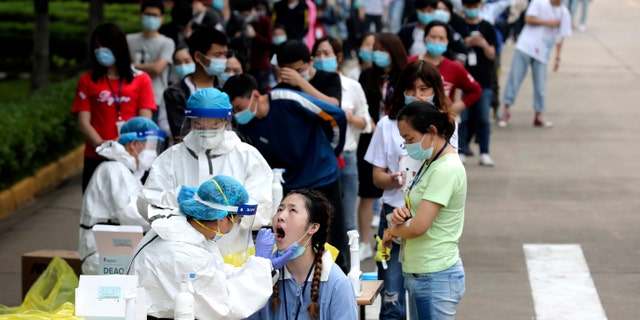by Dom Calicchio
China’s propaganda and censorship operation is unmatched by any other nation in the world, a university researcher claims
Chinese officials also may have been concerned about sparking a panic, The Associated Press reported in April. It notes that Chinese leaders failed to act during a six-day stretch in January -- between the day they learned they were facing a pandemic and the day they informed the public -- even though hundreds of infected people were showing up at hospitals during the intervening days.
ProPublica and the Times quote a University of California at Berkeley professor who claims that China’s propaganda and censorship operation is unmatched by any other nation in the world.
"This is a huge thing," Xiao Qiang, a research scientist at UC Berkeley’s School of Information told the outlets. "No other country has that."
The report credits Chinese President Xi Jinping with launching the operation, called the Cyberspace Administration of China (CAC), in 2014.
China’s censors were worried that news about Wenliang’s death would set off a "butterfly effect" of subsequent news stories about the virus that could be damaging for the government, so they ordered news outlets not to promote stories about Wenliang and instructed social media sites to remove his name from lists of trending topics, the report said.
The censors also hired internet trolls to post "distracting chatter" on the internet to help influence public opinion as the coronavirus gradually became a bigger news story.
The Chinese government also ordered security personnel to silence commentators whose views were not aligned with those of the government, according to the report.

People line up for medical workers to take swabs for the coronavirus test at a large factory in Wuhan in central China's Hubei province on May 15, 2020. (Associated Press)
The leaked documents suggested a massive deployment of both people and technology – "and, presumably, lots of money" – to control the narrative, the report said.
The information was culled from more than 3,200 directives and 1,800 memos as well as other files from the CAC, as well as computer code from Chinese firm Urun Big Data Services, a service provider to local governments.
ProPublica and the Times identified hacker group CCP Unmasked as their source for the documents – and the outlets claim they verified the authenticity of much of the material.
The documents include instructions on which words to avoid using in headlines, such as "incurable," and "fatal," and to avoid using the word "lockdown" in travel articles.
CLICK HERE FOR COMPLETE CORONAVIRUS COVERAGE
The report appeared to align with concerns that President Trump and many Republicans have expressed about China’s suspected culpability in the global spread of the coronavirus, which as of early Sunday had infected more than 76 million people around the world and killed more than 1.6 million, including more than 316,000 in the U.S., according to Johns Hopkins University.
Trump and others in the GOP have accused the Chinese government of underplaying the severity of the virus outbreak, the origins of which many trace to Wuhan, China, and have accused the World Health Organization of not demanding more accurate data from Chinese officials.
The U.S. president and others have claimed that bogus information from China had an adverse impact on other nations being able to prepare for the spread of the virus inside their borders.
China’s propaganda and censorship operation is unmatched by any other nation in the world, a university researcher claims
Dom Calicchio
Source: https://www.foxnews.com/world/china-used-internet-troll-army-to-shape-coronavirus-narrative-report
Follow Middle East and Terrorism on Twitter
No comments:
Post a Comment